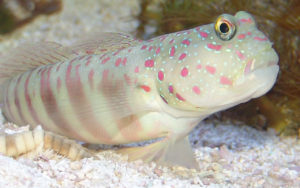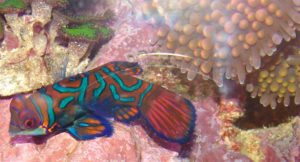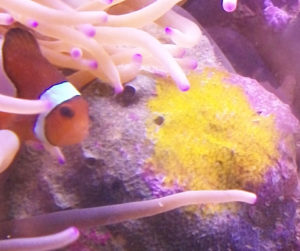There is a common trend I’ve noticed on some of the forums I admin where people feel that they are doing well if their fish survive. Of course we want our fish and other livestock, and plants, to survive, but survival is not the measure of success. Survival is the minimum thing. What we are looking for as keepers of things in water, is for those things to thrive.
To thrive is better than to survive
There’s more to life than just mere survival. That’s true of you, and it’s true of fish. Imagine your life if the only measure of that life were to be alive and not dead! You would hate that. No, you strive (I hope) to produce a life wherein you thrive, grow, become robust, and excel. That’s the life you should also want for your fish (or anything else you choose to keep).

There are a several reasons why our fish don’t thrive
Ignorance is one of the primary reasons that our livestock just get by.
Perhaps we don’t know what they need, or we don’t know what they should avoid. For example some fish require just algae, and some require algae and meaty foods.
Sometimes we put two animals together that shouldn’t be. Humans don’t like bad neighbors anymore than fish do. While you don’t have the power to move your own next door neighbors away, you do have the power to get rid of (or better yet not buy) fish that don’t get alone.
Fish need space as well. Buying fish that are too big or too many for the space creates problems. The fish might remain alive, but it will be fighting for space, food, and sometimes even a place to sleep at night. My fish each have enough room, a little rock or coral, to hide in at night. They know their own bed and since they each have one they don’t fight over it. I learned that lesson by observation in previous tanks. So now when I design a tank I make sure to include plenty of hiding places for various sizes of fish.
The idea is to plan it out so that you know ahead of time what to buy and what not to.

Time and money are other reasons fish just get by.
Keeping a fish tank in top shape requires sacrifice on your part. That sacrifice generally comes in two forms that matter: time and money.
If you know you won’t have time to upkeep a complex tank, then don’t start one. Or if you think you will get board of the tank and your excitement level will fall off causing you to not care for it, then be aware of that. Be willing to get rid of a tank, or fish, or plants, or whatever it is that requires the most time if that’s what it takes to keep the rest alive.
Right now my large tank has only soft corals in it. That’s because they are relatively easy to keep and require less effort on my part. I know that my current time limits preclude me from the time and effort needed to keep hard corals. It’s not fair to the living creatures, or to me, to buy something I just don’t have time to take care of.
Money, of course, is always an issue when it comes to the hobby, especially with the marine side of things. If you don’t have the cash to buy the salt, or the calcium, or do the testing, then don’t create a tank that requires this. You can do this hobby really cheap or really expensive, that’s up to you. But if you do it expensive when you don’t have the income, then you are dooming yourself and your livestock to eventual failure.
Again, the idea is to plan it out so that you can buy what is sustainable for you with the idea of super healthy livestock in mind.

Is it better to have one fish than two?
I know people who have just one single fish in a huge tank. The tank is dedicated to that fish. Of course this only works if you have a species that lives alone. Some fish require other fish to thrive. You have to know this too.
Some species of large puffer might do great all by themselves. But if you are keeping guppy in a freshwater tank then they want friends. Not only friends, but lovers. There has to be the right balance of male to female of the females suffer from over-matting or the males suffer from fighting over mates.
Sometimes it’s better have one big fat and happy fish than to have a few that are just getting by.
In the case of a fish like guppy keeping them properly might mean you don’t have room for another species that you love. If done right you will find that you would rather buy a second tank than mix species that don’t belong or overstock what you have because you fancy the look of a fish and want it.
Decide now the kind of fishkeeper you want to be.
The choice is up to you and that’s nice. You can have an easy and affordable tank or a hard and expensive one. Just make sure that you plan it all out and that it’s all sustainable for you.
The hobby is supposed to be enjoyable, fun, relaxing, and often entertaining. If it’s not, then no matter how well the fish are doing you aren’t doing it right. Be willing to back off if you need to so that you and the fish can be happy about the situation. It’s a balance but only you have the ability to maintain it. The fish are helpless passengers in your decisions. Being a good steward sometimes means saying good-bye and sometimes means saying “no” to yourself and your own desires. That’s not so easy, especially when we see that gorgeous fish or coral we think we can’t live without. But the question isn’t so much if we can live without it, but can it thrive with us.
